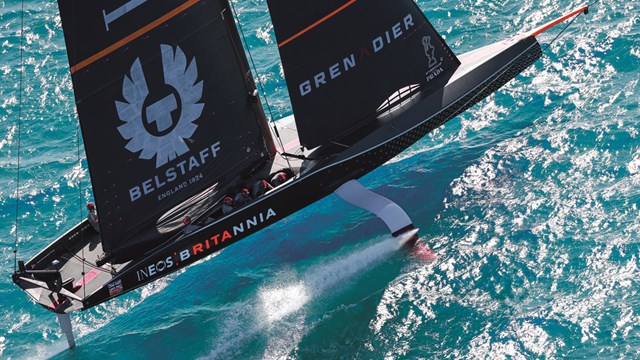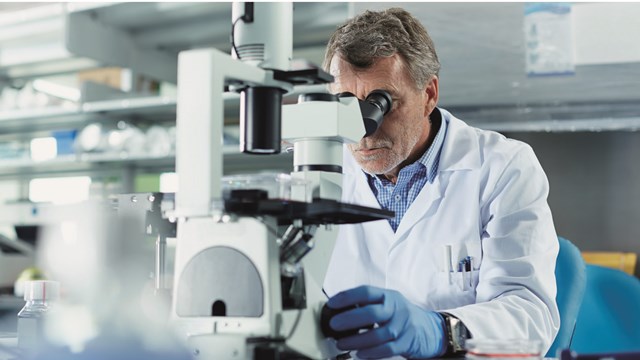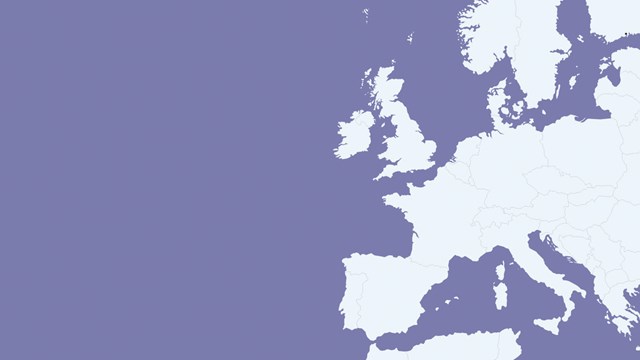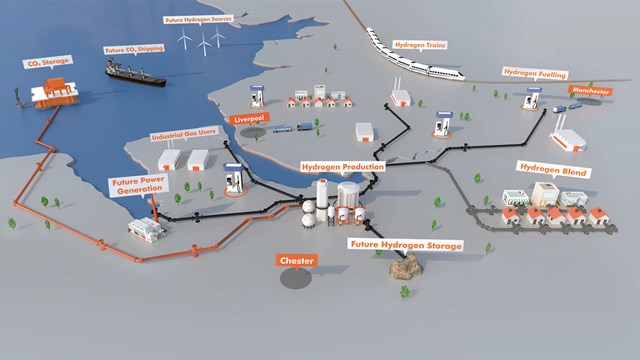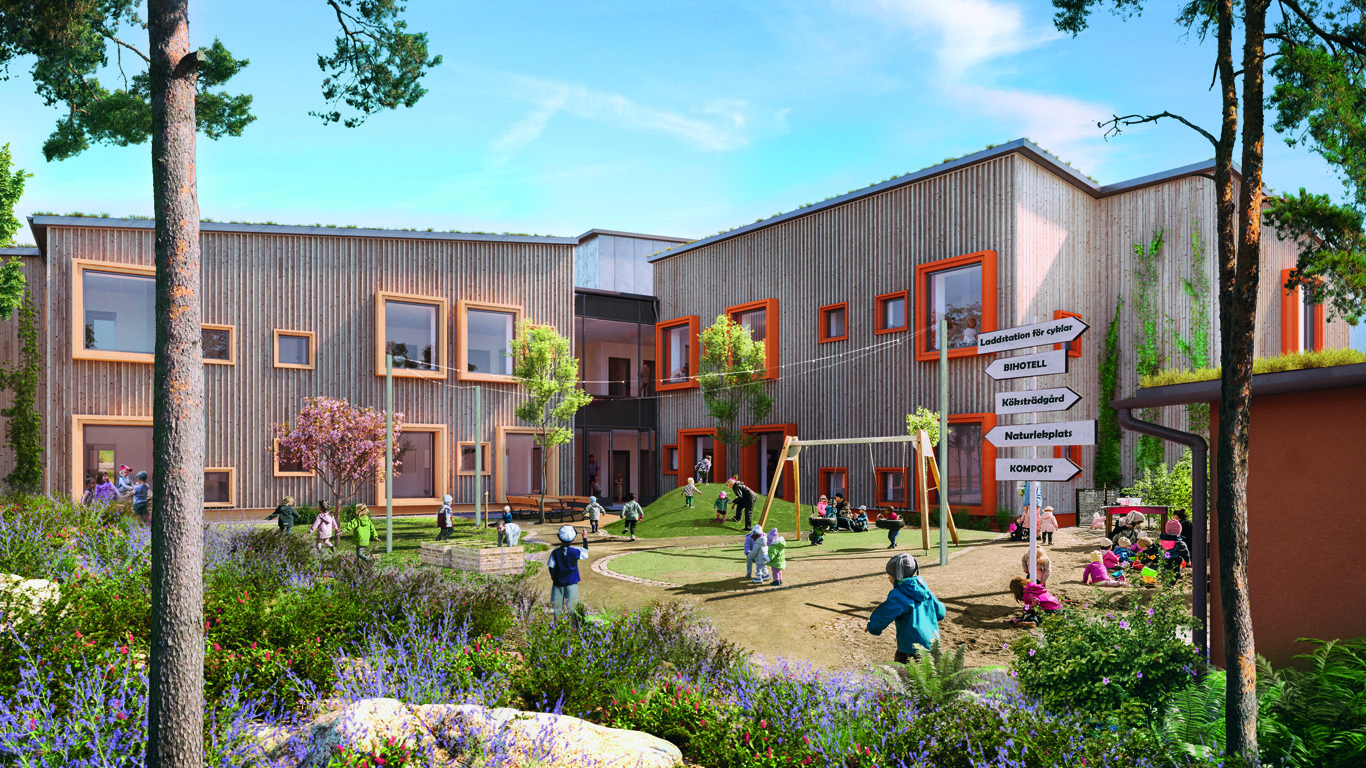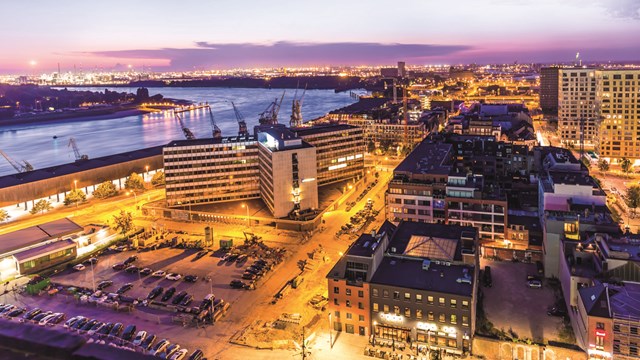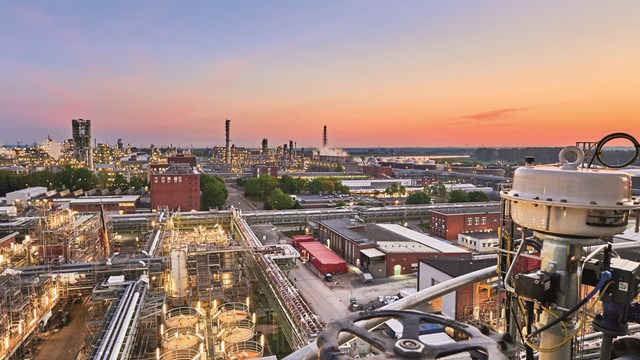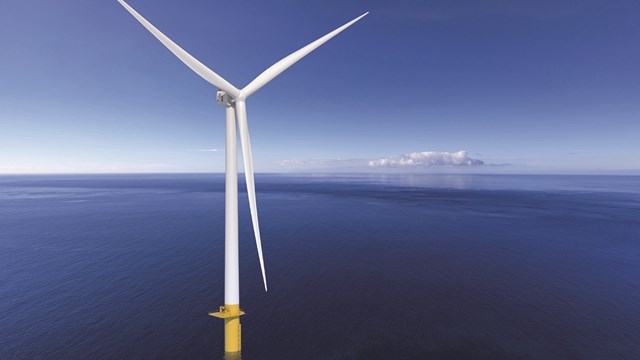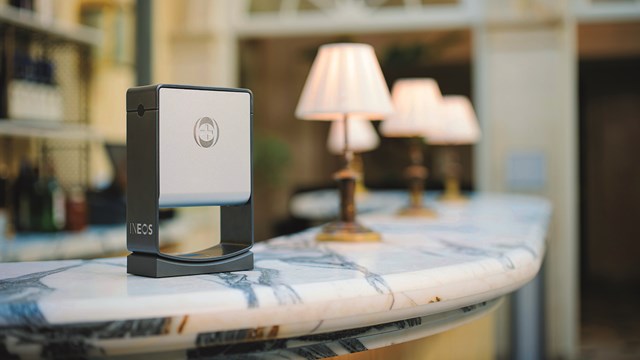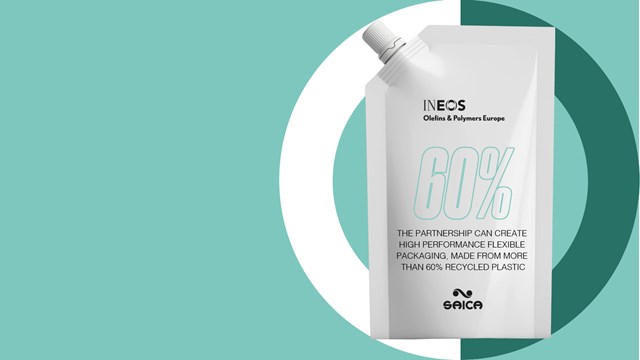INEOS INCH ISSUE 21
Also
-
Challenge of a lifetime
INEOS TEAM UK remain upbeat despite a win by the Italian team Luna Rossa Prada Pirelli in this year’s hard-fought Prada Cup Final, in the lead-up to the battle for The America’s Cup
-
The rise of the superbug
INEOS joins the race against drug resistance
Scroll Down
-
Challenge of a lifetime
INEOS’ dream of winning the America’s Cup – and ending 170 years of hurt for Britain – is over.
Everyone on INEOS TEAM UK, down to the man who had to weigh every nut and bolt on the raceboat, had been focused on bringing home sailing’s greatest prize for the first time.
But in the end, despite four years of dedication, hard work, grit and hundreds of thousands of man hours from the 100+ strong team, it was not to be.
“We started this team in 2014 with the goal to bring the America’s Cup back to Britain and as far as we’re concerned, we still need to get the job done,” said skipper Sir Ben Ainslie.
During the warm-up races in December, the British team had struggled with technical issues and Britannia lost every race.
But changes were made to the boat – and they went on to win every round robin race to qualify for the Prada Cup Final.
“That was an amazing event to watch because it was such a turnaround in our fortunes,” said INEOS Chairman and Founder Jim Ratcliffe.
But in the end, light winds favoured the Italian team, Luna Rossa Prada Pirelli, in the Prada Cup Final.
“They had the better overall package across the range of wind conditions and deserved to take the final,” said Sir Ben.
Despite the disappointment, the four-time Olympic gold medallist said he could not be more proud of his team.
“We really did fight until the end,” he said. “We are just sorry we couldn’t bring it home for our supporters.”
But in the America’s Cup which followed, it was the Italian team, Luna Rossa Prada Pirelli, who were left fighting.
They lost 7 – 3 to defending champions Emirates Team New Zealand.
Over the past four years, the British team has been focused solely on winning sailing’s most coveted and oldest trophy.
“We’ve learnt a huge amount throughout this campaign and now we need to go back and analyse where we didn’t get it quite right,” said Sir Ben. “Both Luna Rossa and Team New Zealand have been in this game 20 and 30 years respectively. That learning and development is key.”
The British team had been working in partnership with Mercedes-AMG Petronas F1 team.
Up to 30 of Mercedes’ applied science team, led by director Graham Miller, had manufactured some of the most sophisticated technology ever seen in The America’s Cup.
“The attention to detail at Mercedes F1 is phenomenal,” said Nick Holroyd, Chief Designer INEOS TEAM UK. “They gave us a leg-up. They took the underpinnings of what we started and added a layer of sophistication and detail to it. They brought exactness to our campaign.”
The Brackley team had also used their F1 know-how to help the INEOS team develop and implement innovations in engineering, human science, simulation and data analysis.
While F1 drivers are in direct contact with the ‘pit wall’ – a place where all strategic decisions are made by backroom staff during a race – such a concept was almost unheard of in the world of sailing.
Until now.
During training, a 750-horsepower RIB had raced alongside Britannia.
Onboard the RIB were designers and engineers working with some of the most advanced technology in world sport.
Onboard Britannia, and mostly invisible to the naked eye, were about 1,000 sensors which fed more than one million bits of data back to the design team every day.
Everything was monitored and analysed – from the sailors’ heart rates to the speed of the wind.
Some of that data was monitored live to ensure the crew’s safety while out on the water.
During training most of the data was analysed by the entire design and sailing team the following day.
Britannia was made up of about 17,300 individual parts, which were all tested and weighed before they went on the boat.
Current cup holders Emirates Team New Zealand had insisted that each boat must not weigh more than 6520kg.
“There was no give or take,” said Sir Ben.
At INEOS TEAM UK, it had been naval architect Alan Boot’s job to monitor the weight of the boat.
He had to record everything that went on board, from the bolts on the instrument displays to the drive train assembly, and flag up any potential problems.
To help cut down on the crew’s weight, the wing trimmer, the pilot and Sir Ben had all shed a few pounds.
“It was the grinders we wanted to be as heavy as they possibly could be to maximise the power output,” said Sir Ben.
The America’s Cup – described by Sir Jim as the pinnacle of sailing – is the only major international sporting trophy that Britain has failed to win.
Despite 2021 not being Britain’s year, Sir Ben said he hoped to be back.
“INEOS have been amazing backers and partners and we can’t give them enough thanks for that over the past four years,” he said.
“But with INEOS it’s not just the financial backing. It’s the approach they take to business and why they are so successful. It’s that attention to detail, rigour and determination that we share in the sporting world.”
For all the latest news about INEOS TEAM UK, please log on to www.ineosteamuk.com
Britannia
Britannia has changed significantly from the team’s first race The AC75 cannot weigh more than 6,520kg without the sails and crew.Crew
The 11 crewmen must not weigh more than 990 kg and are allowed a total of 55 kg of personal equipment, including wet suits, shoes, life jackets, radios, headsets and any food and water.10 years
It took 90,000 + hours to design – the equivalent of about 10 years.17,300
Britannia is made up of 17,300 individual parts. Each one is weighed before it goes aboard.Wing Foils
The wing foils were made at Mercedes F1’s headquarters in the UK and enable Britannia to fly.Weatherman
A Spaniard, who has navigated some of the world’s most difficult oceans, is the team’s weatherman. Juan Vila regularly briefs the team about the weather so they can plan ahead – and know what to expect.50,000
It took 50,000 +
hours to build.Sensors
There are about 1,000 sensors feeding over one million bits of data back to the design team every single day.Live Data
British company Papercast has designed and built a bespoke, lightweight, waterproof and robust unit that feeds real-time information to enable the team to keep the unstable boat flying flat and fast. The live data is streamed around the boat because every milli-second counts. All of the crew’s decisions are based on the information they can see in front of them.
Elaine does the honours
A retired head teacher, who has helped to inspire millions of children around the world to be active for 15 minutes every day and enjoy the great outdoors, is Britannia’s Godmother. Elaine Wyllie joins an impressive line-up of ships’ Godmothers including legendary Hollywood actresses Whoopi Goldberg, Helen Mirren, Julie Andrews and Sophia Loren.
INEOS TEAM UK had hoped The Queen might do the honours, given that Britannia is named in honour of her great grandfather’s racing cutter.
But due to COVID-19, she has been unable to take on any more engagements.
“I think it’s absolutely incredible to be the second choice after the Queen,” said Elaine, who founded The Daily Mile. “In fact, it makes it even more of an honour.”
Elaine, who was awarded an MBE by the Queen in 2019, will not be in New Zealand to watch the crew race but planned to savour every minute of every race – on television.
“Britannia will be in my thoughts and I will be glued to the TV,” she said. “As well as being a magnificent feat of engineering, she is absolutely beautiful and I am very proud of her and her crew.”
The original Britannia racing cutter – built for King Edward VII – enjoyed huge success, winning 231 races.
In her final years, she was raced by King George V.
His dying wish was for Britannia to follow him to his grave.
When he died in 1936, Britannia was towed out to St Catherine’s Deep off the Isle of Wight and scuttled by the Royal Navy in the same waters where the first America’s Cup was raced in 1851.
-
The rise of the superbug
The overuse and misuse of antibiotics poses a serious threat to humanity but underfunding means little has been done to address the problem. All that is about to change, thanks, in part, to a £100 million gift from INEOS to Oxford University
A silent killer, which threatens to claim more than 10 million lives every year by 2050, must be tackled before it’s too late, say scientists. They fear unless new drugs are found to replace existing antibiotics that have lost their efficacy, common infections, which have been successfully treated with antibiotics for decades, could become killers once again.
Misuse and overuse of antibiotics are to blame for their demise, and underfunding means little has been done to address what is deemed to be one of the biggest rising threats to global health since COVID-19.
“COVID-19 has been like an earthquake,” said Professor Tim Walsh. “It’s been rapid and sudden, whereas antimicrobial resistance, you can’t see it, you can’t feel it, but nonetheless it’s increasing year on year.”
But all that is about to change.
INEOS has committed £100 million to support research at Britain’s Oxford University into the growing resistance to antibiotics.
“Antimicrobial resistance is one of these hidden dangers for the human race,” said INEOS Chairman and Founder Sir Jim Ratcliffe. “But I don’t think it is widely recognised yet.”
All modern surgery and cancer treatments rely on the use of effective antibiotics to reduce infections.
“To lose this precious gift will signal a return to a pre-antibiotic era,” said Mr David Sweetnam, Chairman of the new INEOS Oxford Institute for Antimicrobial Research. “We now have a very narrow window of opportunity in which to change course and prevent the unthinkable from becoming the inevitable.”
Illnesses which have evolved to become difficult or impossible to treat with antibiotics already kill about 1.5 million people a year.
But scientists warn that medicine will be taken back to the dark ages if antibiotics are rendered ineffective – and millions will die.
“If this pandemic has taught us anything, it is the importance of not ignoring high consequence events that are headed our way,” said Professor Louise Richardson, Vice Chancellor of the University of Oxford.
It is estimated that about 80% (by weight) of worldwide antibiotics are used in animal agriculture, not always directly to treat infection, but often to promote growth for meat.
“This over-usage is helping infections to develop drug resistance in humans too, and damages the medical frontline,” said Professor Walsh. “The new INEOS Oxford Institute will be unique in researching novel, animal-specific drugs, to preserve human medicines' effectiveness for longer- which could have a significant impact on delaying the AMR crisis."
Oxford University played a crucial role in the early development of antibiotics in the 1940s.
Alexander Fleming, a Scottish physician and microbiologist, had discovered penicillin by accident by 1928 but it was a team of scientists at Oxford who turned Fleming’s discovery – that the Penicillium mould genus produced a substance that inhibited the growth of some bacteria – into the wonder drug that has saved so many lives.
After this, followed a golden era of antibiotic research and discovery, but this ran out of road. No new antibiotics have been successfully developed since the 1980s.
“This donation will allow us to do work on antibiotics that we have been dreaming about doing for the past couple of decades,” said Professor Chris Schofield, Academic lead (chemistry) at the INEOS Oxford Institute.
Mr Sweetnam said the COVID-19 pandemic had shown the world the importance of science and research.
He pointed out that the vaccines, which were created in record time, had been developed from research conducted long before COVID-19 struck.
“It’s clear that we must be looking right now for new antibiotics with the same urgency as we have been for vaccines,” he said. “The consequence of continued complacency doesn’t bear thinking about.”
INEOS’ donation is one of the largest ever given to a UK university.
“It is an example of a powerful partnership between public and private institutions to address global problems,” said Professor Richardson.
Lord O’Neill of Gatley, the economist who co-authored the book Superbugs: An Arms Race against Bacteria, said INEOS' success in the chemicals industry coupled with the great minds of Oxford University and collaborating scientists offered hope.
“This new Institute, applying a model of reinvesting profit to drive further progress in the field, could be the breakthrough moment the global AMR challenge needs,” he said.
Without urgent collaborative action to halt the rise of superbugs, mankind could return to a world where taken-for-granted treatments such as chemotherapy and hip replacements could become too risky, childbirth becomes extremely dangerous, and even a simple scratch could kill.
INEOS’ £100 million gift will enable around 50 researchers over the next 5 years to:
ADDRESS the overuse and misuse of antibiotics
COLLABORATE with other global leaders in the field of antimicrobial resistance to prevent common microbes becoming multi-drug resistant superbugs, such as MRSA
DEVELOP new drugs for both people and animals
-
Why the world needs a clean break
INEOS is now channelling its energy and expertise into a new business which has just one aim: to cut CO2 emissions. Its new UK-based business will focus on ramping up production of clean hydrogen across Europe – for its own sites, but critically for other industries now seeking affordable, low-carbon energy.
“We have already been approached by several potential strategic partners, ranging from other chemical partners to connections in the automotive industry,” said Wouter Bleukx, who is manager of the newly-formed Hydrogen Business Unit. “We soon hope to disclose more about these partnerships.”
INEOS-owned INOVYN is Europe’s largest existing operator of electrolysis, the same critical technology which can use carbon neutral energy to produce hydrogen for power, industry and transport.
It also knows how to store and handle hydrogen safely and is working on a first project to potentially store hydrogen in one of its enormous salt caverns in the UK.
“We are uniquely placed to play a leading role in developing these new opportunities,” said Geir Tuft, CEO of INOVYN.
INEOS produces 300,000 tonnes of hydrogen every year, mainly as a co-product from producing chlorine and cracking oil and gas to make olefins and polymers.
Most of the hydrogen is either burned as a fuel or used to make other chemicals.
But INOVYN believes more can be done for the greater good of society.
In the last edition of INCH, Chris Stark, CEO of The Committee on Climate Change, described hydrogen as the Heineken of fuels because of all the parts it reaches.
“We can use it to heat homes and power transport and industry,” he said.
He told INCH that it was impossible for the world to achieve net zero emissions – and, in doing so, drastically cut harmful CO2 emissions – without it.
INEOS is already involved in several projects to encourage others to use hydrogen instead of gas and oil.
Its new Hydrogen Business Unit will work under the umbrella of INOVYN but its strategy will apply to all of INEOS’ businesses around the world.
It aims is to build a large-scale hydrogen production unit within five years.
Earlier this year the European Commission unveiled its own hydrogen strategy. Wouter said that this European roadmap, for widespread use of hydrogen across Europe by 2030 and beyond, presents fresh opportunities for INEOS’ new business.
“Hydrogen is an important part of a climate neutral economy that has been discussed for decades,” he said. “Finally, a hydrogen-fuelled economy is within reach.”
- The Clean Hydrogen Business Unit will have its headquarters in the UK.
- Our aim is to cut CO2 emissions across all INEOS sites and other European industries with the use of clean hydrogen.
- INEOS will be ramping up production of clean hydrogen across all its European manufacturing sites.
- The production of hydrogen based on electrolysis, powered by zero carbon electricity, will provide flexibility and storage capacity for heat and power, chemicals and transport markets.
-
It's time for a new industrial revolution
It was once the cradle of the Industrial Revolution. Now – 260 years on – those towns and cities, which were once powered by coal, could be on the brink of changing the face of how the world works once again. HyNet North West in the UK will play a leading role in the world’s fight against climate change. And INEOS-owned INOVYN has an important part to play in this industry-led and inspired project.
It is one of a consortium of world-leading organisations committed to tackling the climate crisis.
Together they want to create a network so that hydrogen can be produced, safely stored and distributed to decarbonise the North West of England and North Wales.
“Our job will be to provide a place to store the hydrogen in vast quantities,” said Richard Stevenson, INOVYN’s Storage Projects Manager. “Only then can the network cope with changes in supply and demand. By providing large-scale storage, we will greatly enhance the system’s resilience.”
It’s an ambitious, but deliverable, project that is viewed by those involved as an opportunity not to be missed.
For these low carbon hydrogen technologies – combined with carbon capture and storage – could help to reduce CO2 emissions by 10 million tonnes every year by 2030.
That’s the equivalent of taking four million cars off the road or heating more than five million homes.
“The project is a game-changer and will provide a lasting legacy for generations to come in the North West and North Wales,” said Richard.
It is hoped that by as early as 2025: 400,000 tonnes of CO2 will be captured from industry.
A low carbon hydrogen plant will be in operation at Stanlow Refinery to produce 350MW – enough energy to heat about a third of a million homes with natural gas boilers.
Offshore and onshore gas extraction assets will be repurposed so that one million tonnes of CO2 can be transported and stored in three depleted gas reservoirs under the seabed in Liverpool Bay, and construction of the UK’s first hydrogen pipeline network will be underway to supply local industry and to blend up to 20% hydrogen with natural gas into the local networks.
“This level of blending can be used with existing gas boilers and cookers, and is seen as an important step towards decarbonising homes,” said Richard.
By 2030, HyNet plans to be delivering 30TWh/y of low carbon hydrogen across the North West to industry, flexible power generation, transport and heating.
“That’s about 45% of the amount of energy currently delivered in the gas network in the region,” said Richard.
INOVYN will develop the first, large-scale underground facility in the Cheshire salt basin to store vast quantities of hydrogen and connect to the UK’s first hydrogen network of 350km of new pipes.
Networked hydrogen will accelerate the decarbonisation of heavy transport including trains, HGVs, buses and ships.
By 2030, HyNet also plans to capture a further one million tonnes of CO2 from industry every year.
If successful, the project will establish the UK as a world leader in clean energy innovation and show what can be achieved through collaboration.
This year the UK government, which recently set a legally-binding target of net zero emissions by 2050, will publish its much-anticipated, national hydrogen strategy.
“Both government and industry see hydrogen as having a clear role, alongside electrification, in creating a greener and cleaner future,” said David Parkin, of Progressive Energy, HyNet’s Project Director.
INOVYN
INOVYN will develop the first, large-scale underground facility in the Cheshire salt basin to store vast quantities of hydrogen and connect to the UK’s first hydrogen network of 350km of new pipes.10M Tonnes
Reduce CO2 emissions by 10 million tonnes every year by 2030. That’s the equivalent of taking four million cars off the road or heating more than five million homes.30TWh/y
By 2030, HyNet plans to be delivering 30TWh/y of low carbon hydrogen across the North West to industry, flexible power generation, transport and heating.2050
This year the UK government, which recently set a legally-binding target of net zero emissions by 2050, will publish its much-anticipated, national hydrogen strategy. -
Global thinking
Two world-class companies, which believe hydrogen could power the global economy of the future, are now working together. One is Hyundai, one of the largest car manufacturers in the world. The other is INEOS, one of the biggest chemical companies on the planet.
They have signed a ‘memorandum of understanding’ to explore fresh opportunities for producing, supplying and using hydrogen in everyday life.
“The agreement presents both companies with new opportunities to extend a leading role in the clean hydrogen economy,” said Peter Williams, INEOS Group Technology Director.
“We will initially seek to facilitate public and private sector projects focused on the development of a hydrogen value chain in Europe.”
Both companies know the value of hydrogen, which has been described in the past as the Heineken of fuels because of all the parts it reaches.
It can be used to heat homes, and power transport and industry. And when burned as a fuel, it emits only water.
INEOS produces about 300,000 tonnes of hydrogen a year, mainly as a by-product from making chlorine and cracking gas and oil to make olefins and polymers.
Hyundai pioneered the world’s first mass-produced hydrogen-powered car in 2013.
Since then, the car manufacturer, which wants to increase its annual production of hydrogen fuel cell systems to 700,000 units by 2030, has travelled further down that road.
The company’s hydrogen-powered NEXO SUV has been described as a car so beautifully clean that it purifies the air as it goes. It takes just five minutes to fill the tank and that full tank lasts for 414 miles.
As part of the agreement, which was signed in November, the two companies will be exploring whether Hyundai’s second generation fuel cell system can be used in INEOS’ 4x4, The Grenadier.
Saehoon Kim, Senior Vice President and Head of Fuel Cell Centre at Hyundai Motor Company, said he hoped Hyundai’s decades-long expertise in hydrogen fuel cell could be combined with INEOS’ expertise to help mass produce green hydrogen and fuel cells for The Grenadier.
“This will provide an important low-carbon option across a wide range of sectors,” he said.
Pete said INEOS’ experience in storing and handling hydrogen, combined with its established know-how in electrolysis technology, put INEOS in a unique position to drive progress towards a carbon-free future based on hydrogen.
INEOS buys car plant to build 4 x 4
“It was a unique opportunity that we simply could not ignore,” said INEOS Chairman Sir Jim Ratcliffe. “INEOS Automotive set out a vision to build the world’s best utilitarian 4x4, and, at our new home in Hambach, we will do just that.”
The site currently builds Daimler’s Smart EQ fortwo electric vehicles.
Under the deal, INEOS Automotive will continue to produce the Smart car and parts for Mercedes-Benz.
“This acquisition marks our biggest milestone yet in the development of The Grenadier,” said CEO Dirk Heilmann.
“Alongside the exhaustive testing programme that our prototype vehicles are now undergoing, we can now begin preparations at Hambach to build it.”
The first Grenadier is expected to roll off the production line in early 2022.
Dirk said the factory, which is about 200k from Stuttgart, was perfectly placed to tap into supply chains.
-
Hope for the future
BIOVYN™, a new generation of PVC – made from the residue of the wood pulp process, instead of purely gas and oil – is about to make the next generation proud. It has been commandeered for a new ‘fossil-free’ pre-school in the Swedish city of Gothenburg, which has ambitious plans to cut the city’s greenhouse gas emissions by 75% by 2050.
For INEOS-owned INOVYN, the brains behind this new PVC, it is a great honour to be involved in what is known as The Hope Project.
“It is an innovative project to prove the concept that fossil-free construction is possible,” said Inna Jeschke, Marketing Manager at INOVYN.
“It has brought together a range of sustainability experts, innovators, entrepreneurs and suppliers to deliver a truly sustainable community building.”
INOVYN has partnered with Pipelife Sweden which has been commissioned to supply the sustainable PVC pipes.
“We have managed to lower the carbon footprint for these pipe installations by no less than 76%,” said Pipelife project manager Ove Söderberg.
The beauty of BIOVYN™, although more expensive than conventional PVC, is twofold.
It is not only made primarily from a renewable raw material not competing with the food chain but, compared to conventionally-produced PVC, greenhouse gas emissions are cut by more than 90% during production.
“The sustainable and innovative nature of BIOVYN™ make it the perfect choice for this flagship project,” said Ove. BIOVYN™, which was revealed to the world in October 2019, is the world’s first commercially-produced, bio-attributed PVC.
And it has been winning fans – and sales – all over the world ever since.
“We have had amazing interest from all corners of the globe and also from all possible applications, from direct customers in the flooring and pipe industries and a lot from brand owners, including a prominent car manufacturer,” said Inna.
But it didn’t happen overnight. First INEOS O&P in Köln, Germany, had to be satisfied that they could secure the biomass – the renewable raw material.
Once the team in Köln had done that, they had to ensure it could be converted into bio-ethylene in its existing cracker.
Once that hurdle had been cleared, the bio-ethylene was piped directly to INOVYN’s plant at Rheinberg in Germany where it was used to produce BIOVYN™.
The bio-attributed PVC’s sustainable credentials have already been certified by The Roundtable on Sustainable Biomaterials (RSB), whose global mission is to support best practice for sustainable bio-material production.
PVC is essential for modern life today and is already widely used in the renewable energy sector, in cars, buildings, floors, technology and in medical equipment.
“BIOVYN™ pushes sustainability even further,” said Luc Castin, Business Manager, INOVYN.
Rolf Hogan, Executive Director of RSB, has described INOVYN’s latest PVC product as a true leader in the emerging circular bio-economy.
-
Zero tolerance
INEOS in Antwerp has pledged to beat targets set by the EU for reducing greenhouse gas emissions. Hans Casier, CEO of INEOS Phenol & Nitriles, said concentrating on reducing emissions at source rather than just capturing and storing them will be key. “All our sites in Antwerp now have a clear, achievable roadmap,” he said.
The plan will mean INEOS will reach net zero emissions across its business in the Port of Antwerp by 2050 at the latest.
But it also takes into account the EU’s ambition to reduce greenhouse gas emissions to at least 55% below 1990 levels by 2030.
A new €5 billion cracker and propane dehydrogenation complex will be built in Antwerp - and supplied with energy from ENGIE’s wind farm in the North Sea.
The new complex will enable a step change reduction in emissions associated with the manufacture of olefins, the key chemical needed by the car, construction, transport and medical industries.
In addition to switching to green electricity, INEOS also plans to extend its collaboration in existing industrial waste heat and steam networks in the region and increase the use of hydrogen in its chemical processes and power plants.
The company is also involved in an ambitious plan at Lillo to mix captured carbon dioxide with green hydrogen to produce methanol, a chemical widely used in everything from clothing to fuel.
The use of more recycled, or bio-attributed, raw materials, alongside gas and oil, is also being explored.
"All these activities will be underpinned by an ongoing drive to improve the energy and resource efficiency of our processes,” said Hans.
Although the focus will be on avoiding the production of CO2 , rather than waiting to collect and store it later, storage should still be an option for INEOS in the future.
As such, INEOS can rely on experience at its existing carbon capture plants in Zwijndrecht, Tavaux, Lavera and Köln.
Currently about 100,000 tonnes of CO2, which is produced as by-product of the ethylene oxide process at Zwijndrecht, is captured, purified, liquefied, sold and reused.
INEOS draws up clear roadmap
The roadmap has been drawn up to show INEOS the path to creating a climate neutral world.
INEOS’ plants in the Port of Antwerp may be the first to set out on that journey. But they won’t be
the last.“The roadmap will be rolled out and every business in INEOS will be able to look at it and see where they can implement changes to lower their carbon emissions,” said Greet Van Eetvelde, INEOS’ global head of energy and innovation policy.
She has been working on the comprehensive roadmap with Matthias Schnellmann, Carbon Business Developer, for the past year.
Together with INEOS’ sites in Antwerp, they have collected environmental data to set a baseline for a clear and robust plan to reduce emissions.
The roadmap shows how INEOS can reduce its emissions by either switching fuels, using renewable raw materials, increasing the energy and resource efficiency of its plants, or capturing, using or storing the carbon.
“Most of our sites are already energy efficient, so focusing on that alone will not bring us any significant gains,” said Matthias.
“But switching fuels or using renewable raw materials will. We think it is better to reduce our emissions rather than capture and store them.”
He said some sites produced hydrogen as a by-product which could be used by another site to reduce their carbon footprint.
“Each site has different needs,” he said. “The solution is not going to be the same for everyone.
But the roadmap will help them to identify areas where they can improve their processes to make a difference.”
It is hoped the roadmap will create a climate of positive competitiveness across INEOS’ businesses and sites throughout the world.
-
Keeping the lights on
On the day the World Health Organisation declared COVID-19 as a global pandemic, INEOS took decisive action. At that time, just over 4,500 people worldwide had died of this new, invisible killer and many governments were resisting national lockdowns, with some dismissing the virus as a ‘common cold’.
But INEOS, which now operates in 29 countries including China where the virus is believed to have originated, was alarmed.
“The fact that we are a global company was one of our strengths,” said Jeff Seed, SHE Director at INEOS. “Our Asian sites gave us a feel about what to expect and how we could potentially be impacted by the virus.”
The message from Asia was clear: if you want to keep your plants and businesses running, protect your staff now.
As a global producer of essential chemicals that the world would soon need more than ever, that advice was taken to the very heart of INEOS.
“Safety has always been our top priority, and that includes operating in a way that is safe for all our operating teams,” said Jeff. “Our excellent safety performance record is based upon having clear procedures and rules.”
A COVID contingency plan was swiftly agreed. Each business set up strict safety protocols to ensure their own employees stayed safe whilst continuing to operate the plants.
All office-based staff – all over the world – were told to work from home.
Businesses were told to identify critical personnel to operate and maintain the plants.
“That was critical and we cannot thank enough those people who impressively kept our plants running safely,” said Simon Laker, the INEOS Group Operations Director.
In addition, all non-essential work on the plants was postponed and all non-essential travel was banned.
“If we had not acted quickly, we could have allowed the virus to enter our workplaces and made a lot of our employees sick very quickly,” said Jeff. “Not only do we want our employees to stay healthy, but this would also have taken them out of the workplace and closed the factories and businesses down.”
Jeff was with Simon at INEOS’ Green Lake facility in America when INEOS Capital asked them to start preparing for the sites to continue working through the pandemic.
“At the time we really did not know what the impact was going to be on our operations across the world,” he said. “But we were determined to continue to operate in a way that was safe for all of our operating teams.”
In the event of an outbreak of COVID-19, INEOS was prepared to shut down factories.
Weekly calls were set up between the HR Directors of each business to monitor the situation by site and country. Regular board meetings within each business were also held to ensure each business could act quickly as required.
In the UK, INEOS’ critical workers were regularly tested.
“That was a really powerful way to keep ahead of the virus,” said Jeff.
INEOS’ actions meant not one of its factories had to close, except where mandated by country regulations.
“Our strict procedures and rapid action ensured that we have kept positive cases under control and enabled our employees to stay safe whilst continuing to be able to run our operations,” said HR Director Jill Dolan.
Staff, who displayed symptoms of COVID-19, were told not to come to work. Since testing regimes varied by country, it was not always possible for these staff to be tested.
“That’s one of the reasons why the precise numbers of positive cases in INEOS will never be known,” said Jill. “But this approach was key to keeping any spread of the virus to a minimum.”
INEOS also ensured that those, who needed to self-isolate due to close contact with another individual, did so to keep themselves and their families safe.
INEOS, though, did not just manage to keep its own operations running.
Its early action meant it was also able to step up to meet the unprecedented, global demand for chemicals desperately needed to slow the spread of COVID-19 and help treat those infected.
Production was ramped up at many INEOS sites with INEOS-owned INOVYN’s plants across Europe running continuously to produce sodium hypochlorite (household bleach), which had been recognised by the World Health Organisation and UNICEF as the best and quickest way to kill COVID-19 on hard surfaces.
The company also built six factories in less than 10 days each to produce hand sanitiser and supplied millions of bottles to thousands of hospitals free of charge.
By diverting resources away from non-essential work at sites in America, mainland Europe and the UK, INEOS kept the flow of chemicals to those making vital medical materials, disinfectants and equipment.
Countries were also rightly concerned about protecting their drinking water supplies.
In the US, utilities companies needed INEOS’ acrylamide and polyacrylamide to purify America’s water and UK water companies relied on INEOS to provides the chlorine necessary to keep 98% of Britain’s water safe to drink.
“We acted sooner than many other big businesses because there was a public safety issue as well as a business interruption issue,” said Jeff.
INEOS, though, knows the pandemic is far from over despite hopes that a vaccine will be ready soon.
“We may not be out of the woods but the fact that we have managed to navigate it so far, keeping our employees safe and our plants running, is testament to the hard work and commitment of all of our employees,” said Tom Crotty, INEOS’ Communications Director.
-
Shaping the future
Composites are shaping the world like never before. For unlike metal, they cannot only be moulded into almost any shape, but are tougher and lighter than steel, fire resistant and don’t rust.
“In the past the deterioration of mild steel has led, in extreme cases, to catastrophic structure failure,” said Lynn Calder, CEO of INEOS Composites.
The world witnessed that on August 14, 2018, when a 200-metre stretch of the Morandi Bridge in Genoa collapsed, killing 43 people.
Experts say the bridge’s steel cables were encased in concrete which meant corrosion could not be seen.
The steel tower, which also collapsed, was also encased in concrete.
When steel rusts, it expands and can crack concrete.
Composites work differently – and, as such, have found their way into cars, trucks, boats, homes, infrastructure, chemical plants and the sea where they can withstand the harshest of conditions.
INEOS’ composites resins are also resistant to attack from chemicals.
As such they have been used, instead of traditional materials, at many of INEOS’ manufacturing plants, including INEOS Pigments’ business in Ashtabula in Ohio.
“Steel reinforcement in concrete bridges is also now being replaced with composite rebar,” said Lynn.
Composites are also good for the environment.
INEOS Composites’ resins have proved a key component in shaping the future for wind turbines because they are lighter than steel.
In 2019 the world’s longest-ever wind turbine blade was built in Cherbourg, France.
At 107-metres, it was longer than a football pitch.
“These blades simply couldn’t be built to today’s extreme size, and generate the huge amounts of power they do, without the strength to weight ratio of composite materials,” said Lynn.
INEOS, though, is also proud of the fact that it has helped to create a viable market for recycled plastics.
In every 220kg drum of its PET family of composite resins are the remnants of about 1,800 recycled PET plastic bottles.
“By using recycled PET as a raw material to make composites, we lock in the carbon,” said Lynn.
In doing so, INEOS is also showing the world it is serious about its promise to use 325,000 tonnes of recycled polymer in its own products by 2025.
INEOS Enterprises agreed to acquire Ashland’s entire Composites business, along with its European BDO business, in 2018 for $1 billion.
The Composites business alone has 15 manufacturing sites in Europe, North and South America, Asia and the Middle East and employs 1,000 people.
Ashley Reed, CEO of INEOS Enterprises, said composite resins had been the materials of choice for the world’s boat builders for 30 years and with good reason due to their incredible qualities.
“We believe composite resins have great potential growth under INEOS ownership,” he said at the time.
After the deal was completed in 2019, INEOS Composites became a business in its own right.
Looking to the future, composite materials are well placed to overcome the challenges faced by the construction industry, which wants to use more environmentally-sound products.
Andrew Miller, head of INEOS Composites Europe, said they was a growing interest in the market towards bio and recycled PET-based resins.
“Fibre-reinforced plastic composites are easy to install and maintain, have a long life, and can be recycled so it’s easy to see why they will become far more competitive than conventional materials such as steel and concrete,” he said.
INEOS Composites
Global leader in unsaturated polyester resins, vinyl ester resins and gelcoats
- Corrosion Resistance
- Fire Retardance
- Ultraviolet Resistance
- Water and Chemical Resistance
- High Mechanical Properties
- Thermal and Electrical Insulation
- Impact and Scratch Resistance
- High Strength-to-Weight Ratios
-
Dispensing with tradition
INEOS has once again dispensed with traditional thinking. It has turned the humble hand sanitiser dispenser into a stylish gadget that will look good in the smartest of shops, offices, schools, restaurants and homes.
“This is the first time a lot of people will have really thought about having a dispenser in the home,” said Oli Hayward-Young, whose job is to manage the project. “But if it is going in someone’s home, it needs to look good. It needs to fit with the décor.”
Oli said many traditional dispensers tended to be ‘ugly, white plastic boxes’.
“They leave a negative feeling the minute you walk into a room,” he said. “This is a new concept for dispensers.”
He added: “There will be many businesses, which want to protect their staff and customers without compromising the look and feel of a building. Ours has been designed to be aesthetically pleasing.”
Not only that but it has also been designed by the same, world-class team who created The Grenadier, INEOS’ new
4 x 4, which is due to go on sale next year.The man, who helped to bring The Grenadier to life on paper, is Toby Ecuyer, a trained architect and one of Britain’s best super yacht designers.
He has helped to design two types of dispenser – one for businesses and a smaller one for the home.
The professional unit, which can be customised by a company, comes in three styles – for the table, freestanding or wall mounted.
The smaller one, which is available in red, cream, silver or black, is designed to sit on a kitchen worktop or table, or be mounted on a wall by the front door.
Swiss engineering firm Gritec will initially manufacture 20,000 dispensers at their site in Grüsch.
Both went on sale via INEOS Hygienics’ website just before Christmas, along with the easy-to-fit refill cartridges.
“We got immediate interest from the public,” said Oli.
For Oli, who joined INEOS’ new global healthcare business earlier this year, it’s an exciting time.
“INEOS has always been in the background making products that underpin society,” he said. “But now it is doing something in the foreground to get the world back on its feet.”
On Friday October 23 at 8.45pm UK time, INEOS made history – by running its first-ever TV advertising campaign to showcase its hospital-grade hand sanitisers.
The advert made its debut during Coronation Street, a long-running and popular British soap.
George Ratcliffe, Chief Operating Officer of INEOS Hygienics, described it as an important milestone in the young company’s life.
“Our products were used by hospitals at the height of the pandemic and our elite sports teams are now using them,” he said. “This was our chance to show the public that, despite being a new entrant into the market, we are a trusted alternative.”
The adverts appeared to have worked.“Our weekly sales increased by over 40% after they were shown,” said George.
INEOS founded the global healthcare business INEOS Hygienics in July, but Oli said building the dispenser arm of the business, and getting the product to market so quickly, had been an amazing team effort.
“We have been able to call on the project management, commercial and engineering expertise across the company and people have risen to the challenge in very tough times,” he said.
The business, he said, had been built the long-term and a new era where the importance of hand sanitiser has never been more critical.
“Although we have seen an increase in the use of sanitisers in 2020, we believe there will be a lasting impact,” he said. “People’s attitudes have changed. Everyone now knows why it is so important to keep their hands clean to stop getting ill.”
Tottenham teams up with INEOS
Tottenham Hotspur Football Club has teamed up with INEOS Hygienics to keep its players, staff and fans safe.
The Premier League football club ordered hundreds of INEOS’ new touchless hand sanitiser dispensers just days after the Hygienics business launched the range to help maintain high levels of hygiene at the ground.
“It’s been fantastic to see the dispensers rolling off the production line,” said George Ratcliffe, COO of INEOS Hygienics.
-
Perfect partners
INEOS has partnered with yet another company that will help it to reduce plastic waste – and give a more environmentally-conscious public more of what it wants. Working together, INEOS Olefins & Polymers and Saica Natur have managed to create high performance flexible packaging, made from more than 60% of recycled low-density polyethylene and linear low-density polyethylene.
Rob Ingram, CEO INEOS O&P North Europe, said to do it, significant technical barriers had been overcome on both sides.
“Saica are experts in recycling postconsumer plastic film,” he said. “And we have the polymer science expertise to improve the quality, specification, and performance of the finished product.”
The new packaging grade polymers, which can be used to make flexible pouches for detergent among other things, has now been added to INEOS’ new range of plastics, which was hailed as ground-breaking when it was launched in October 2019.
“We don’t like to make a big fuss until we know we have something to show,” David Kirkwood, Polymer Business Manager, told INCH at the time.
The Recycl-IN range was launched with high density polyethylene and polypropylene grades containing up to 50% of recycled waste plastic.
The range has now expanded to include low density polyethylene and linear low density, and now contains up to 60% of recycled waste plastic.
The development and expansion of the Recycl-IN range is important step in increasing resource efficiency and helps to show consumers that plastics are a valuable resource that should be brought back to life, not just used once and thrown away.
“Using waste plastics as a raw material for our products helps to reduce the use of new gas and oil resources,” said Rob.
INEOS O&P’s decision to form a partnership with Saica, a leading Spanish waste management company, means that it will now have a reliable supply of recycled product, which can be combined with high performance polymers produced at INEOS’ own sites to make polymer grades that can make flexible packaging that is as good as the original.
“This is an example of commitment towards achieving a long-term sustainable growth,” said Victor Sanz, General of Saica Natur.
“It shows we are moving towards a circular economy model through the use of resources in a more sustainable and efficient way.”
In 2019 – to help launch this new range of hybrid plastics – INEOS signed long-term agreements with a number of recycling companies including Viridor, the UK’s largest plastics recycling and reprocessing plant.
The new facility in Avonmouth, near Bristol, will be powered by Viridor’s £252m energy recovery plant which puts non-recyclable waste to work to produce electricity and heat.
“Partnerships, such as the one with INEOS, are crucial to the transition to the circular economy, where every product is comprised of a majority of recycled plastics,” said Keith Trower, managing director of Viridor Resource Management.
In 2019 the company’s recycling index, which tracks public attitudes to recycling, found that nine in 10 of those polled believe existing plastic should be used again.
“The message from the public could not be clearer when it comes to recycling and putting recycled content back into the economy,” said Viridor managing director Phil Piddington. “Where others see waste, we see resource.”
- INEOS Olefins & Polymers have partnered with leading waste management company Saica Natur in a supply agreement for recycled LDPE and LLDPE. The long-term agreement will help INEOS to serve the growing demand for increased levels of recycled product in sustainable, virgin quality flexible packaging.
- The partnership can create high performance flexible packaging, made from more than 60% recycled plastic
- Saica Natur are a leading Spanish waste management company and are experts in recycling post-consumer plastic film
- This recycled material will be added to the RECYCL-IN range and can be used to make flexible pouches for detergent, personal care products among other things
-
In the headlines
Going for gold
View
